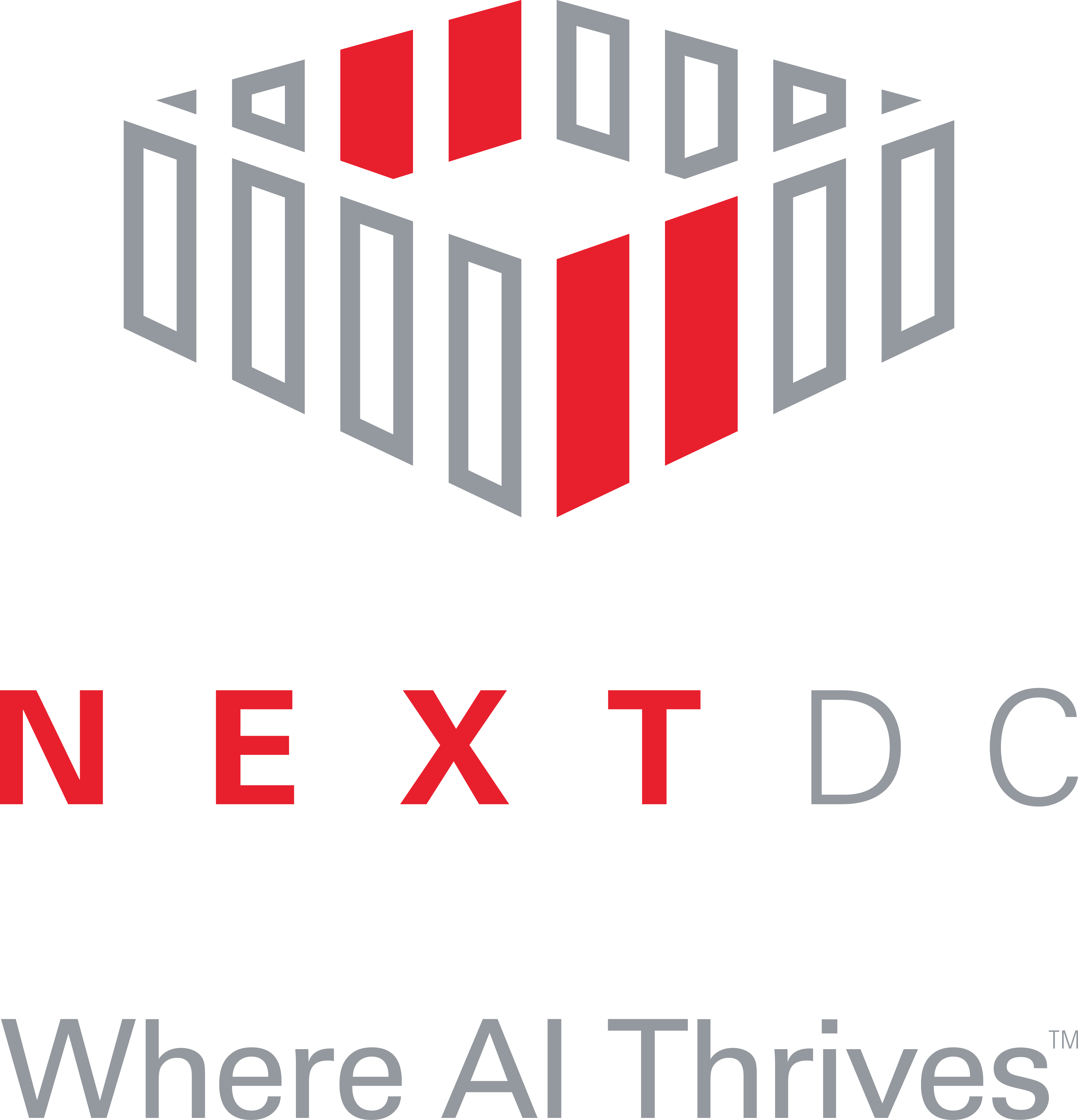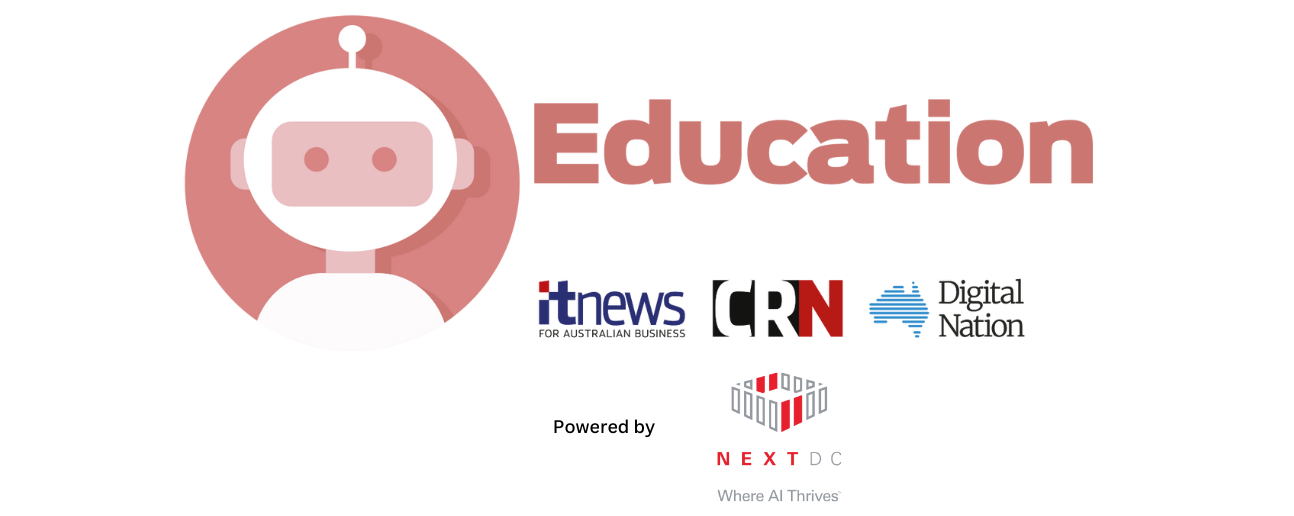
When it comes to navigating the myriad choices presented by AI, few industries face a challenge as profound as that of the education sector, where executives are tasked with preparing students for a world where AI will be ubiquitous.

Responsibility for AI in education tends to be split between executives with oversight of technology services and those designing and delivering the curriculum. However, these definitions are becoming less distinct, with the IT environment playing a more prominent role in education delivery.
According to Professor Maryanne Dever, the deputy vice-chancellor and vice-president for education at Western Sydney University, the need to move quickly is paramount.
"Our students are hungry to work with us on this and are hungry for clarity on what's OK and what's not," Dever said.
Dever pointed to a recent global survey from the Digital Education Council which found that 86 percent of higher education students said they used AI in their studies, with 54 percent doing so on a weekly basis. The same report also found 58 percent of students felt they did not have sufficient AI knowledge and skills.
"We have some pretty fundamental questions about what it (AI) means for education," Dever said.
"There has been a lot of focus up to now on the impact on assessment and questions of cheating, but there has been less attention to the really big questions of how AI shakes up and reshapes the foundations of knowledge and learning." - Professor Maryanne Dever, deputy vice-chancellor and vice-president for education, Western Sydney University
Training AI for training humans
Dever sees potential for AI in personalising learning experiences, automating administrative tasks for staff, providing immediate feedback for students, and for enhancing student engagement.
Although still early in its journey, Dever said WSU is looking at its programs of study and learning outcomes to determine if they are fit for purpose.
"It is a great moment for us to be reaching out to relevant industries who might be future employers of our graduates to ask what they are doing in the AI space, and what are they going to be looking for in their graduates," she said.
"But at the heart of it is the question of digital literacies for our students and how we embed those systematically in our curriculum."
One example of AI being put into action at WSU is Metahuman, which uses an AI to play the role of a patient to students in health and caregiving programs. Metahuman can respond to questions using a variety of personality types and provides an alternative to the more costly method of using human actors.
AI is making inroads into the education offerings of numerous universities, including at the University of Sydney, which is developing Cogniti AI as a customisable AI agent that can be deployed across different subjects to respond to student queries. Cogniti AI is expected to be applied to 600 units of study by the end of this year.
In almost all instances, the benefits of AI are yet to be properly determined, although Dever said she is heartened by the willingness of different institutions to share what they have learned.
A vocational approach
The challenge of how best to deploy AI exists at all tiers of the education sector. At the Melbourne-based TAFE provider Kangan Institute, head of digital initiatives Andrew Roadknight is taking an advisory approach towards the use of AI tools.
"There are some compliance challenges we face with regard to data retention within the education sector, but we are very much aware that we need to keep pace with the space as well," Roadknight said.

Kangan is enabling some students to gain experience through use of Microsoft Copilot, and Roadknight said it will be launching a data program in 2025 that will help students understand that there is much more to AI than just ChatGPT.
"We are looking at how we make AI and machine learning a key part of the program delivery," Roadknight said.
"There is a lot of experimentation around it."
While Roadknight said that a strict curriculum for AI does not yet exist, Kangan has written and accredited two new qualifications to support its work, including a Certificate IV in Data Foundations and a Diploma of Data Analytics that features 21 new units of competency.
In seeking to create the talent pools of tomorrow, Roadknight faces the challenge of insufficient skills in the market today.

"If we want to run up a localised AI using Ollama, we need to have staff that are trained and understand how to do all of that, and it is not like they have the time to do this on top of the other content they have to deliver," Roadknight said.
"We want to be on that cutting edge and providing students the best opportunity, but when it changes so quickly, it is really hard to keep up with it."
Roadknight maintains a vision of one day seeing AI as a tool to help students navigate their own learning journeys.
"I would like to see students being comfortable enough to use it for the development of their work, and a tool that is there to supplement what were traditional teaching methodology," he said.
"And this is where we can leverage the soft skills side of it, in getting students to think critically about what they are putting in and what comes out of it." - Andrew Roadknight, head of digital initiatives, Kangan Institute
Getting schooled in AI
While AI might be bringing disruption to many aspects of education, its potential also holds the promise to resolve one of the key challenges facing the sector.
At Melbourne High School, IT manager Lachlan Gilbert and his team of six are tasked with servicing the IT needs of 1400 students, but also face a backlog of work including numerous data projects and automation projects that require coding skills. It is here the Gilbert sees an immediate advantage through adopting some of the AI tools that are already available.
"My team and myself are using it to make our IT operations more efficient," Gilbert said.

"Projects that would have taken a novice in code three months only take a month, because you just iterate your code using ChatGPT."
Gilbert said this benefit is especially appreciated in government schools, where the demand for technology services has not been matched by funding.
"I am stuck trying to solve the same problems with less resources, but AI is enabling that," he said.
"It is definitely improving what we are doing in terms of IT operations."
A growing opportunity
While both the short and long-term benefits of AI in education are hard to ascertain, institutions around the world will continue spending up big to find them. According to PSI Intelligence, the global market for AI in education has an estimated value of US$5.4 billion ($8.03 billion) in 2024, and it is expected to reach US$55.44 billion ($82.45 billion) by 2030.

Just how much of that will be spent in Australia is difficult to determine, although the total Australian education technology sector is estimated by the University of Technology Sydney to generate $3.6 billion annually.
Ultimately, the rapid pace with which AI is influencing the world means that educators have no choice but to invest in building new capabilities.

According to Kangan Institute’s Roadknight, this is a task that is fundamental to an educator's duty of care.
"That just boils down to us evolving our way of engaging with students," Roadknight said.
"It is part of what we should be doing – we shouldn’t be using the methods of 10 years ago. The world's different, and we need to change with it."
Education Champion

Universities are embracing advanced technology to meet modern demands for seamless, blended learning experiences. Integrating cloud-based and legacy systems is crucial to support students, faculty, and staff. Generative AI and API-driven platforms are transforming these integrations, enabling features like real-time lecture summaries and VR demonstrations. Institutions leveraging these innovations can enhance user experiences and maintain a competitive edge in attracting talent.
State of AI Champions
We are proud to present the State of AI Report Champions, and we will showcase the work they are doing in the coming days.
.png)
















